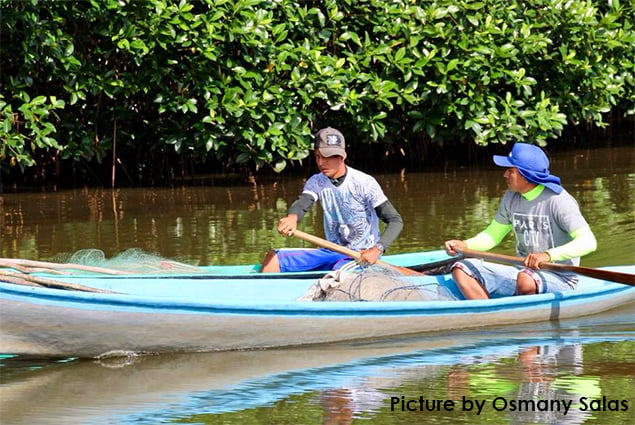Illegal Fishing Is Costing Belize Millions and Undermining National Efforts At Sustainable Fisheries Efforts
The impact of illegal incursions into Belizean territory and marine environment have featured prominently in the conversations related to the Guatemalan claim to Belize and the highly anticipated ICJ vote. Irrespective of the outcome of the vote on May 8th, Belizeans everywhere should be concerned about the pillaging of our fisheries resources by foreign fisher folk and poachers given these illegal activities represent millions of dollars in economic loss and irrevocable damage to our world renowned marine environment. The consequences to both our commercial fisheries and tourism sector bodes ill for the Belizeans who depend on fishing and the tens of thousands of Belizeans who directly and indirectly depend on marine-based tourism activities for their livelihoods.
The BNN maintains that the impact of illegal fishing undermines Belizean jobs and threatens national food security interests. This matter has been ignored for far too long. We therefore call on the Government of Belize, through the Ministry of Fisheries, Forestry and the Environment and the Ministry of National Security to address illegal fishing activities as a matter of national priority and to immediately undertake all necessary steps to safeguard the Belizean jobs that are at risk, namely the 15,000 commercial fishing related jobs, the 2,700 commercial fishing jobs and 2,100 sport fishing tourism jobs.
An investigative article published April 7th, 2019 in The Reporter under the headline: Guatemala’s Fishing Trade Spells Trouble for Belize, provides evidence of the large scale and daily incursions by Guatemalan gillnetters into Belizean waters; a decades-old and intensifying practice.
Guatemalan fishers primarily utilize gillnets and research conducted in 2007 reveals that the catch and export of Belize’s marine resources by these fisher folks directly to Guatemalan ports have escalated dramatically every year. This most recent investigative report estimates that at present between 100,000 – 200,000 pounds per year of all types of fish, including protected species, are being exported to Guatemala. That’s millions of dollars of seafood not being accounted for in Belize’s formal economy. The investigator has provided photos depicting fields of drying Belizean fish and rays, as well as giant barrels filled with salted (corned) Belizean fish, including protected sport fishing species like the Permit, and keystone species like shark, in Livingston, Guatemala.
In 2007, Dr. Rachel Graham documented the massive and illegal export of Belize’s sharks in her research paper, Vulnerability Assessment of Sharks and Rays in Belize: Captures and Trade. The paper, commissioned by the World Conservation Society and permitted by the Fisheries Department, estimates that 1.7 million pounds of whole shark and nearly 26,000 pounds of shark fins were exported to Guatemala from Belize in 2007. She noted that “Sharks in Belize are scarce where they were once abundant”. Do we dare imagine what current levels are now? As a keystone species, the health of shark populations is critical to the health of marine ecosystems. These disturbing images demonstrate the magnitude of this invasion and highlights that negative impact it poses to Belizean fishers and Belize’s tourism industry.
Belize’s fishermen are acutely aware of these massive incursions by Guatemalan gillnetters. They indicate that Guatemalan fishing boats operate at night in Belizean waters (including within Marine Protected Areas) with miles of gillnets.
According to data obtained by the Coalition for Sustainable Fisheries from the Belize Fisheries Department, 83 fishers were licensed to use gillnets in Belizean waters in 2018. Hundreds of illegal and unlicensed fishers are believed to be using miles of gillnets on a regular basis at sea. The BNN notes the Coalition’s position that the 83 licensed Belizean fishers can be supported to transition away from this supplemental fishing gear. The Belize Coast Guard has already publicly stated that a phase-out/ban of gillnets would significantly boost enforcement efforts against illegal fishing activities.
For more information, contact Chair, Froyla Tzalam at 615-8532, or Senator Osmany Salas at 602-2535; Belize13thSenator@gmail.com












